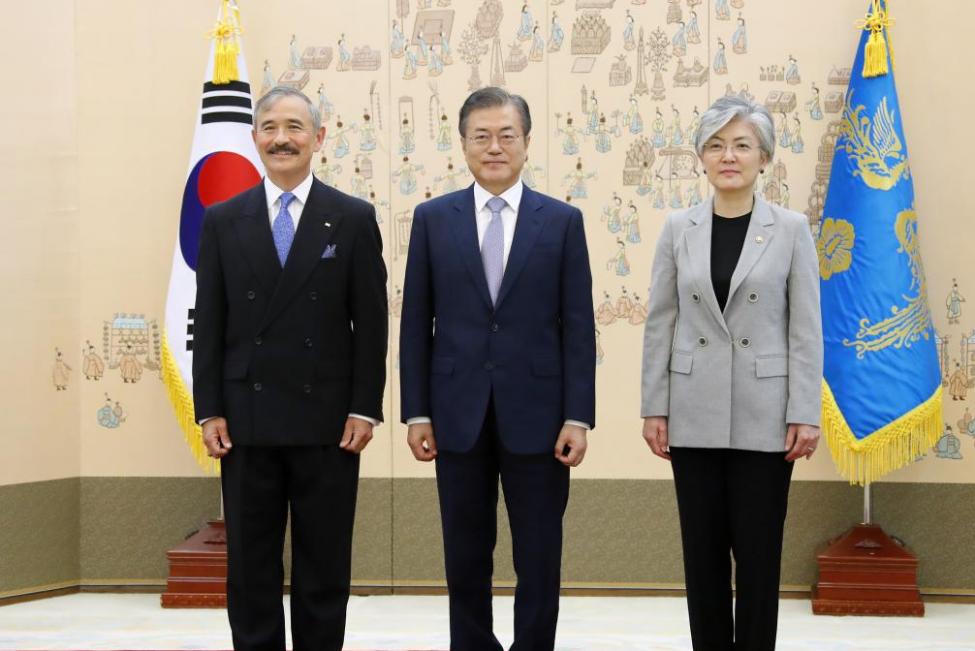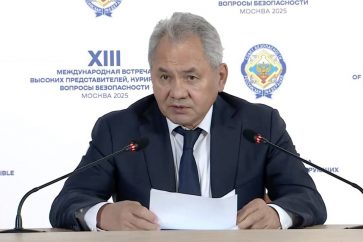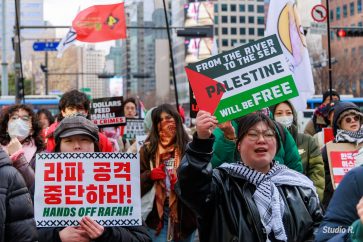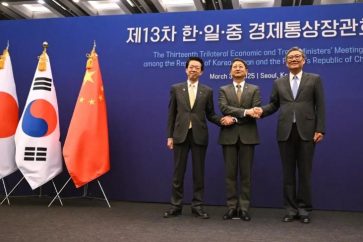The US ambassador to South Korea has come under scrutiny for his controversial remarks over Seoul’s relations with North Korea, calling on the South’s government to consult with Washington when pursuing new exchanges with Pyongyang.
Ambassador Harry Harris, in the South’s capital on Thursday, told international media that it would be better for Seoul to consult Washington to run any plans to engage with Pyongyang, including the possibility of allowing tourists to visit the North.
The possibility of allowing visits to the North was brought up by the South’s President Moon Jae-In last week in a bid to help ease tensions and encourage Pyongyang to resume talks with the United States.
The North has already said it would welcome tourists from South Korea.
The remarks by Harris drew harsh criticism from senior members of South Korea’s government, who accused him of “meddling in domestic affairs” and even “acting like a governor-general,” of the colonial rule over Korea.
“It’s very inappropriate for the ambassador to make such a mention in the media over remarks by the President of the host nation,” said the official on Friday.
A spokesman for the South’s Unification Ministry declined to comment specifically on the ambassador’s remarks, but said that Seoul’s “policy with regard to North Korea comes under our sovereignty.”
Harris has even been criticized in the country over his facial hair, which reminds many South Koreans of officials in the Japanese colonial government that ruled Korea from 1910 to 1945.
Harris, who was born in Japan to a Japanese mother and an American father, has been criticized for growing a mustache that reminds many South Koreans of the colonial rule.
A ruling party lawmaker compared him with a “governor general” of the Japanese government during the colonial rule.
“The mustache has become associated with the latest US image of being disrespectful and even coercive toward Korea,” wrote the Korea Times. “Harris often has been ridiculed for not being an ambassador, but a governor general.”
The ambassador, however, reacted to the public comments about his heritage and his appearance, saying, “My mustache, for some reason, has become a point of some fascination here.”
“I understand the historical animosity that exists between both of the nations,” Harris said referring to long-time tensions between South Korea and Japan.
“But I am not the Japanese-American ambassador to Korea — I am the American ambassador to Korea,” he added.
South Korea, a US ally in the region, has been pushing for the resumption of talks between Pyongyang and Washington since the diplomatic process between them hit a deadlock last year.
North Korea has been under multiple rounds of harsh sanctions by the United Nations and the US over its nuclear and missile programs.
Inter-Korean talks have also stalled amid a deadlock in talks between Washington and Pyongyang. The US has been refusing to offer any sanctions relief to the North even as Pyongyang has taken several unilateral steps as signs of goodwill since 2017, including demolishing a major nuclear test site.
There have also been concerns about a rise in tensions recently as North Korea has resumed its missile testing because the US missed a year-end deadline to take action.
The North, for months, had been calling on the US to ease the sanctions imposed on the country over its nuclear and ballistic missile programs in order for diplomacy to make sense.
Earlier this year, The North’s leader Kim Jong-un, eventually called off a two-year moratorium on nuclear and missile tests early this year and warned that the world would soon witness “a new strategic weapon” developed by Pyongyang.
Shortly after the declaration, South Korea’s president cited a “desperate need” for both Seoul and Pyongyang to improve relations.
Source: AFP




